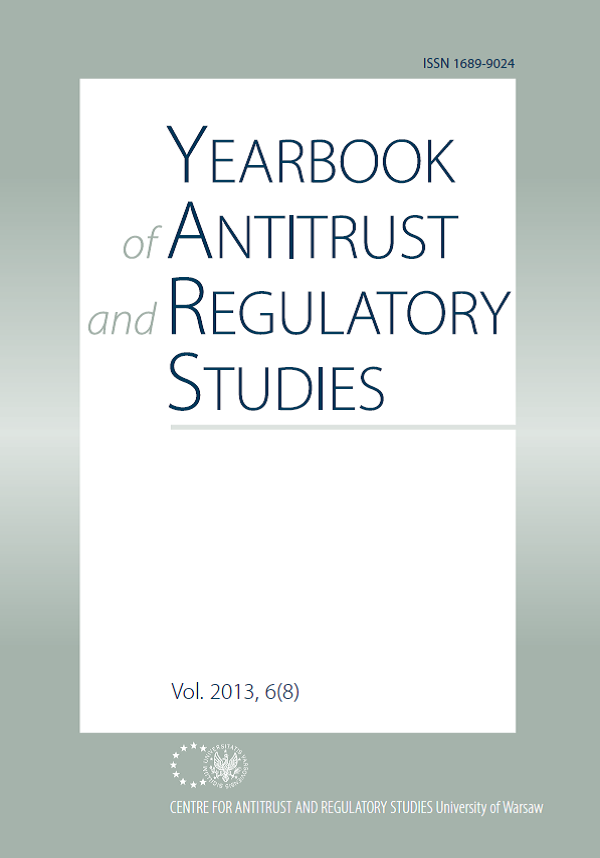Private Enforcement of Competition Law – the Case of Estonia
Private Enforcement of Competition Law – the Case of Estonia
Author(s): Karin SeinSubject(s): Business Economy / Management, Commercial Law
Published by: Wydawnictwo Naukowe Wydziału Zarządzania Uniwersytetu Warszawskiego
Keywords: antitrust damage claim; collective redress; Estonia; evidence; private enforcement of competition law; public enforcement of competition law
Summary/Abstract: Jurisprudence on private enforcement of competition law has so far been almost non-existent in Estonia. Most cases where competition law issues are raised within the context of damage claims are solved by out-of-court settlements. One of the main reasons for this scarcity is the fact that this is a fairly unfamiliar field for Estonian lawyers, attorneys and judges. The first reason for the low number of private enforcement of competition law cases in Estonia is therefore lacking awareness and legal uncertainty. The other key barrier lies in burden of proof issues associated with damage claims. It has proven very difficult in practice for an injured person to prove that he/she sustained damages as a result of a competition law infringement; even more so to prove the actual extent of such damages. There is no juridical practice yet on how to calculate business losses and judges face considerable difficulties when confronted with this task. Another problem lies in the availability of evidence. As discovery is not possible in Estonia, its civil procedure rules make it difficult for claimants to obtain evidence necessary to prove the facts underlying their claims.Estonian law does not provide for a special procedure for antitrust damage claims – there are no collective claims, no class actions, nor actions by representative bodies or other forms of public interest litigation (no collective redress). It is thus only possible to file damage claims arising from competition law infringements either in normal civil proceedings or as a civil claim within the framework of criminal proceedings on a competition law crime. The need for collective redress has not yet been subject to a legal debate at the national level, and there has not been a single private enforcement case opened by a consumer in Estonia so far. The only Supreme Court case in existence in this field, which was decided in 2011, has cleared the basis and availability of damage claims for competition law infringement. It has shown, at the same time, the many problems connected to calculating damages in this context.
Journal: Yearbook of Antitrust and Regulatory Studies (YARS)
- Issue Year: 6/2013
- Issue No: 8
- Page Range: 129-139
- Page Count: 11
- Language: English

